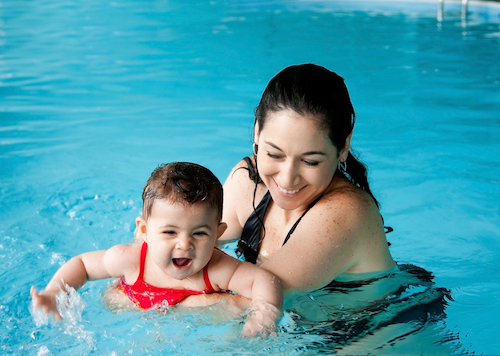Italians are known to be child-loving and family oriented, so should you find yourself pregnant as an expat in Italy, you should have few difficulties in accessing a high standard of maternity care in this modern European nation.To an extent, your maternity care will depend on whether you are covered by public healthcare, or whether you have a private health insurance plan with a maternity option, but whether you access the public or the private maternity sector, you should find a good level of care available throughout your pregnancy.
How to decide on a birth plan
A birth plan is a list of what you would like to have happen in labor and beyond, written so that your doctor know what your wishes and expectations might be. Examples of questions you might want to consider include:
• where do you want to give birth?
• who do you want to have with you (e.g. your partner)?
• what kind of birth do you want (e.g. vaginal birth or a Caesarian)
• do you need any birthing aids?
• do you want pain relief, and if so, what kind?
• what kind of birthing environment would you prefer?
Make sure that you check with the hospital as to pain relief, for instance: you may have to ask for an epidural beforehand as these are not commonplace in the Italian maternity system and in order to receive permission for one, you will also need to have an ECG one month before delivery. You can discuss this with your doctor or gynecologist well in advance of the birth.

Some expat mothers warn that you should not expect your birth plan to be followed too closely, and be prepared to insist on any elements about which you feel strongly. This can be challenging as not all Italian medical personnel speak English.
Italian maternity care
The national insurance plan or SSN (Servizio Sanitario Nazionale) covers all residents including expats if they are contributing to the scheme and is overall run by the Ministry of Health, but set up regionally. Many expats prefer to take out private medical insurance (assicurazione sulla salute) to avoid overcrowding and for more luxurious options, including birthing facilities.
If you think you might be pregnant, make an appointment with your GP as soon as possible in order to gain confirmation. Antenatal care is free at the point of delivery if you have been paying into the system and you will be entitled to:
• blood tests (including tests for toxoplasmosis)
• 3 x ultrasound scans
• a tri-test (to check for Down’s Syndrome)
You can choose to have additional tests, and either pay out-of-pocket or under a private policy: a Bi-test will cost in the region of €800, for example.

Check with your midwife if it is possible for you to have a water birth or other alternative form of treatment. This might only be an option in the private sector, however, as the national scheme generally does not cover alternative birthing methods.
Once you go into hospital for delivery, remember to take your own nightclothes and diapers with you: these will not be provided in the public sector and it is probably advisable to take your own towels as well, just in case.
Expats warn that some Italian public hospitals can be basic. The baby’s father, or anyone else of your choice, will be allowed to attend the birth with you in most northern hospitals but southern Italian hospitals may not permit this. You may also find that you are sharing a room with another patient: you can pay to have a private room in a public institution but it may not be cheap, around €170 per night.
Once the baby is born, the hospital will issue the child with a libretto individuale, a health record book in which all procedures, including vaccinations, are recorded. The health service will require you to vaccinate your child against a number of common diseases before you can enroll it in school.

You will be allowed five months’ maternity leave at full pay. If you work in an environment that could endanger the fetus, you will be allowed to take the entire pregnancy off on full pay.
Although the Italian benefit system only allows for 80% of remuneration for a period of eight weeks before, and twelve weeks after childbirth, your employer is required to make up the cost gap. In order to receive cash benefits while you are on maternity leave, your employer must send a medical certificate confirming pregnancy, and a statement from the company certifying that the employee ceased work because of pregnancy, to the INPS (National Social Security Institute).
If your baby is hospitalized during your paid maternity leave, you can suspend your maternity leave and recover it, in whole or in part, starting from the date when the child is discharged and sometimes earlier.
Paternity leave may vary depending on the company that you work for. Your company or the government may also pay you a subsidy, since Italy is currently trying to increase its population. This is currently around €800, even if you are an expat.

The birth must be registered declare the birth at the Register of Births, Marriages and Deaths (Registro Communale dello Stato Civile), either by yourself, a proxy chosen by you, or a doctor present at the birth. A Birth Declaration (Dichiarazione di nascità) will need to be made orally, without witnesses, within three days (in the hospital) and within ten days (if in the town hall). You will also need to notify your embassy or consulate, the health service (A.S.L. Servizio Sanitario Locale), and the tax office (Ufficio Locale dell'Agenzia delle Entrate) in order to set your child up with a tax code.
Will the baby be an Italian citizen?
Your child will only be an Italian citizen if one of the parents has Italian citizenship.
Would you like to share your experience of life abroad with other readers? Answer the questions here to be featured in an interview!

